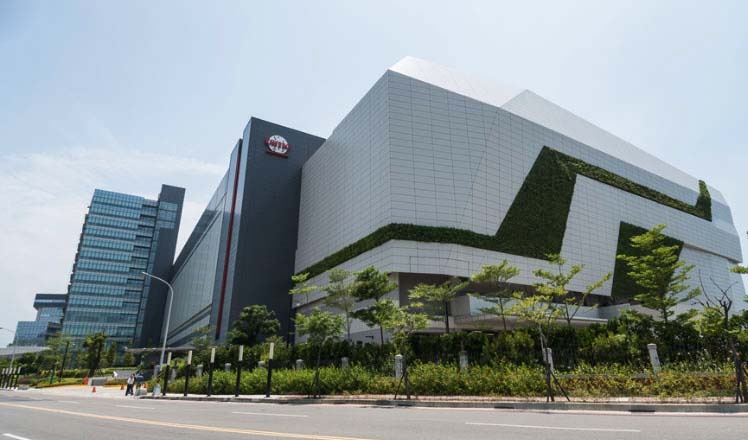Apple's processor manufacturing partner TSMC has officially announced that it will open an advanced semiconductor fabrication plant in Arizona, with the first batch of chips expected in 2024.
Following previous reports that TSMC was planning to open a new fabrication plant in the US, the chip maker has now confirmed that it will spend $12 billion building in Arizona.
"This US facility not only enables us to better support our customers and partners, it also gives us more opportunities to attract global talents," said the company in a statement.
"This project is of critical, strategic importance to a vibrant and competitive US semiconductor ecosystem that enables leading US companies to fabricate their cutting-edge semiconductor products within the United States and benefit from the proximity of a world-class semiconductor foundry and ecosystem," it continued.
The company says that facility construction is planned to start in 2021. It expects chip production will begin in the finished plant in 2024, but its $12 billion expenditure is to be spread over 2021 through 2029.
Taiwan-based TSMC makes Apple's A-series processors used in its iPhones and iPads, with the company expected to move to 5nm processors for the "iPhone 12" later this year. TSMC's new plant will be a 5nm fabrication facility, and so may also provide processors for the rumored ARM-based Macs when it gets going.
TSMC's move to produce more processors within the US follows years of technology companies looking to reduce their dependency on Taiwan and China. It also follows this week's news that President Trump has threatened to tax companies as an incentive to have them move production to the US.
 William Gallagher
William Gallagher


 Marko Zivkovic
Marko Zivkovic
 Mike Wuerthele
Mike Wuerthele
 Christine McKee
Christine McKee
 Amber Neely
Amber Neely
 Wesley Hilliard
Wesley Hilliard












52 Comments
I imagine this would not have been possible without state and federal aid so the question on most people's lips is how much is involved.
Long term, it is a reasonable strategy, even with the government helping out which is how it should be IMO. The control of IoT security has long been a concern to many, and the chipset supply chain has been the biggest worry of them all. It would make sense to have IoT chipsets fabbed locally along with phone SoCs etc.
Between now and 2024 there will be an incredible amount of IoT devices hitting the market. Far outnumbering phone chipsets.
"While huge in terms of foreign investment in the United States, the plan is small by TSMC’s standards. For 2020, TSMC’s capex plan is $15-$16 billion.
The Taiwanese chipmaker said the plan was to build the plant over nine years.
...
A U.S. Commerce Department official said TSMC’s decision to locate the plant in the United States generated “good will” at the department, the drafter of a law that would, if implemented, severely restrict TSMC chip sales to Huawei.
Credit Suisse analysts said proposed restrictions could threaten TSMC’s 14% of sales from Huawei, escalate U.S.-China tensions and delay the rollout of the next-generation 5G mobile network.
“While it is hard to be certain, we believe that TSMC announcing a U.S. Fab could remove the threat of further Huawei restrictions in the very near-term at least,” JP Morgan analysts said in a note."
-- Trump gets a talking point for his re-election campaign
I wonder how much money Apple is putting into this, if any. What percentage of a product must have U.S. sourced parts in order to slap a ‘Made in America’ label on it?